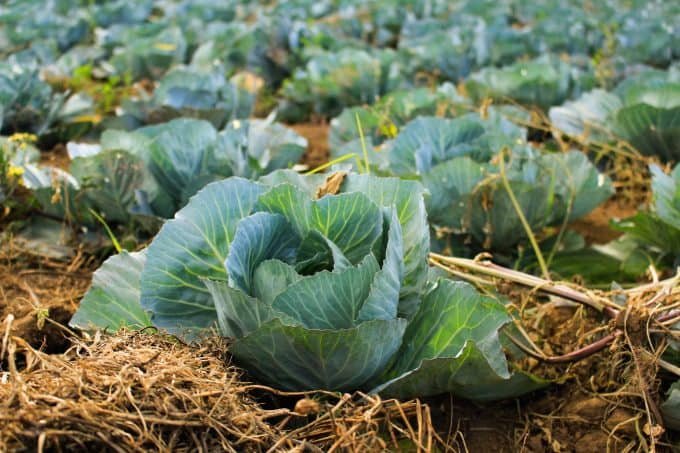Last Updated on March 14, 2023 by Dr Sharon Baisil MD
Vegetables with a glycemic index score of less than 55 are known as low GI vegetables. Such foods are ideal for diabetic patients as they do not cause any spikes in blood sugar levels. Vegetables with low glycemic index ensure slower digestion and absorption of blood sugar, once they are consumed.
Here are 9 such low GI vegetables, that are ideal for diabetic patients:
1. Carrots

Carrots are Non-starchy vegetables that have a lesser impact on blood sugar levels in the body. Raw carrots have a lesser effect on glucose levels than cooked ones, due to a slower rate of digestion.
The glycemic index of a raw carrot is 16 and that of a cooked carrot is 41. Carrots contain nearly 2.8% of fiber, and are rich in vitamin C. The soluble fiber enables slower digestion and absorption which lowers blood sugar levels in the body.
2. Green peas
Green peas are rich in protein and fiber content. The glycemic index of green peas is 22 and that of frozen green peas is 39. Green peas again have a low-calorie content, overweight being a risk factor linked with diabetes, low-calorie foods help lose weight which prevents overweight.
For a diabetic overweight can lead to irregular blood sugar levels. Half to one cup of green peas contains nearly 4 grams of fiber and 4 grams of proteins. Fiber slows down digestion and absorption of carbohydrates in the body which in turn enables stable blood sugar regulation in the body. Also, the mineral content of green peas such as potassium, calcium, and magnesium lowers the risk of heart diseases linked with diabetes.
3. Tomatoes
For diabetic monitoring, daily carb intake is the key. Tomatoes are nonstarchy and have a low carb content. Adding to their nutritional value, tomatoes are low on the glycemic index. The glycemic index of tomatoes is Nearly 15. One cup of freshly chopped tomatoes contains nearly 1.59 grams of protein and 2.2 grams of fiber.
The fiber content ensures stable blood sugar regulation without any sudden spikes in the glucose level. Also, tomatoes have low-calorie content which is beneficial for weight loss. Recent research showed that people who consumed tomatoes on regular basis helped them reduce the risks of cardiovascular diseases linked with type 2 diabetes.
__________________________________
⭐ Check out this Flipbook with 30-Day Diabetic Meal Plan based on Foods from Each Indian State ⭐
(click on the ▶ arrow below to scroll the pages and 🔍 button to enlarge)
_____________________________
4. Spinach
Spinach again is a non-starchy veggie. One cup of spinach contains nearly 4 grams of fiber and 0.9 grams of protein. Spinach has a low carbohydrate content, one cup of spinach has nearly 7 grams of carbohydrates. Due to its low carb content spinach stabilizes the blood sugar levels in the body.
The fiber content slows down the absorption of glucose In the body preventing sudden spikes in blood sugar levels. Alpha lipid acid- the antioxidant content of spinach is known to increase insulin sensitivity, this proves to be a boon for people with diabetes.
5. Broccoli

Broccoli is low on the glycemic index. The glycemic index of broccoli is nearly 10. One cup of raw broccoli contains nearly 2.5 grams of protein and 2.4 grams of fiber. The fiber content ensures slower glucose absorption without sudden spikes in glucose levels in the body and keeps the person feeling full for a longer time. The nutritional content of broccoli help lowers insulin levels in the body.
6. Cucumber
Cucumber is a low-carb veggie. Cucumber is rich in water content. The water content keeps the body hydrated and drains excess glucose from the body and maintains a stable glucose level in the body, without causing any sudden spikes in glucose level.
7. Cauliflower
One cup of cauliflower contains nearly: 2grams of protein and 2.1 grams of fiber. Cauliflower is rich in fiber and has a good amount of water content. A diet with high fiber intake reduces the risk of heart disease and obesity linked with diabetes and also enhances insulin sensitivity in the body. Cauliflower is low on glycemic index The glycemic index of cauliflower is nearly 10.
8. Cabbage

Cabbage has a good amount of antioxidants which is beneficial for a diabetic. Cabbage is low on the glycemic index. The glycemic index of cabbage is nearly 10. Cabbage is low on calories and is beneficial for weight loss
One cup of freshly chopped cabbage contains nearly 1.1 grams of protein and 2.2 grams of fiber. Fiber enables a slower absorption of glucose in the body preventing any sudden spikes in glucose levels after consumption. The protein content is necessary to meet the daily needs of the body for its normal functioning.
9. Onions
Yes, you read it right!!! Onions are rich in antioxidants. Consuming onions on regular basis helps control blood sugar levels in the body. Sulfur and quercetin compounds found in onion have anti-diabetic effects on the body. Inflammation contributes to diabetes. Quercetin has anti-inflammatory properties which reduce inflammation.
One cup of chopped onion contains nearly 1.76 grams of protein and 2.72 grams of fiber. Again, soluble fibers decrease the rate of absorption of glucose from the bloodstream preventing sudden spikes in blood sugar levels after meals.
Therefore including these veggies in the diet benefits the diabetic in various ways and helps to maintain stable glucose levels in the body.
References
- https://care.diabetesjournals.org/content/31/7/1311.short
- https://onlinelibrary.wiley.com/doi/abs/10.1002/food.19970410203
- https://journals.lww.com/jhypertension/Abstract/2007/12000/Intake_of_fruit,_vegetables,_and_antioxidants_and.1.aspx
- https://www.researchgate.net/profile/Joao-Dias-36/publication/316631106_Vegetables_Consumption_and_its_Benefits_on_Diabetes/links/5dfe43b292851c8364907bfe/Vegetables-Consumption-and-its-Benefits-on-Diabetes.pdf
- https://www.researchgate.net/profile/Joao-Dias-36/publication/316631106_Vegetables_Consumption_and_its_Benefits_on_Diabetes/links/5dfe43b292851c8364907bfe/Vegetables-Consumption-and-its-Benefits-on-Diabetes.pdf
- https://www.jstage.jst.go.jp/article/jcbn/54/1/54_13-67/_article/-char/ja/
- https://apps.who.int/iris/bitstream/handle/10665/43146/9241592850_eng.pdf







